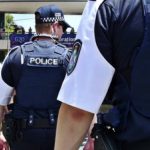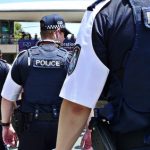The Ethics of Covert Operations: An Interview With Ex-Undercover Operative Dr Clive Harfield

The purpose of covert operations is for law enforcement agents to obtain evidence that would not otherwise be accessible using conventional investigatory methods. This secretive acquiring of evidence is meant to be done in a lawful manner, so that it is not liable for exclusion as illegally or improperly obtained evidence under section 138 of the Evidence Act 1995.
But, the use of undercover police officers and civilian informers can lead to a number of ethical issues, as boundaries blur and the way an officer of the law conducts themselves can become questionable.
As former UK undercover police officer Dr Clive Harfield has pointed out, there’s a paradoxical aspect to policing, which on one level is all about protecting the community, but also involves several behaviours that can be morally corrupting.
The first type of conduct is coercion: restricting individual liberty through arrest, search and seizure. The second type of behaviour is deception, which involves the undermining of trust through the use of covert agents. The last aspect is surveillance: the intrusion upon the right to privacy.
This transgressing of individual rights is usually justified as it guards the wider community from certain individuals who’ve fallen outside accepted moral boundaries or have actively rejected acting within them.
Changing sides
To help guard against the corrupting aspects of covert operations, jurisdictions have in place various governing regimes that set out how such investigations can be carried out under the law. However, despite these provisions, operatives can still cross the line.
One of the most well-known cases of an undercover operative crossing over is that of Mark Kennedy, a former undercover police officer for the UK National Public Order Intelligence Unit.
Mr Kennedy was undercover for seven years whilst investigating environmental protest groups. During this time, he developed a long-term intimate relationship with a woman. And he eventually quit the police and tried to legitimately take on his assumed role as an activist.
Whilst in Australia, there was the case of former NSW Crime Commission (NSWCC) assistant director Mark Standen, who was found guilty of conspiring with his drug trafficking informer to import 300 kilograms of pseudoephedrine into the country.
From the station to the lecture theatre
The police powers to carry out undercover operations in NSW are contained in the Law Enforcement (Controlled Operations) Act 1997 (the Act). Section 16 of the Act provides that any activity that’s authorised to be carried out as part of an operation “does not constitute an offence or corrupt conduct”.
These days, Dr Harfield is well-acquainted with the laws surrounding covert operations in both Australia and the UK. He’s now an academic with a focus on the governance and ethics of covert operations, as well as the use of informers.
Dr Harfield is currently Adjunct Professor at the TC Beirne School of Law at the University of Queensland. And he’s also a Visiting Fellow in Criminology and Policing at Bath Spa University in the United Kingdom.
Sydney Criminal Lawyers® spoke with Dr Clive Harfield about his involvement with covert operations in the UK, his thoughts on the laws governing these operations in NSW and the corrupting effect that the use of civilian informers can have.
Firstly, you’re a former UK police officer, who served for fifteen years in three shire forces and two national agencies. And during your time as an officer of the law, you were a covert operations coordinator.
Dr Harfield, can you briefly outline what your work involved whilst you were in covert operations in the United Kingdom?
My roles included commanding a Dedicated Source Unit: a specialist team with exclusive responsibility for recruiting and managing informers, and managing undercover operations.
I also managed the applications process for Directed Surveillance authorities, ensuring that applications submitted were for a lawful purpose, that they addressed a specific issue identified in the fortnightly Tasking and Coordination Meetings, that they were supported by an intelligence case – I personally reviewed all intelligence reports cited in support of an application to verify the validity of the application – and that the applications contained sufficient relevant and reliable information to enable an Authorising Officer to fulfil his or her statutory duties in respect of authorising Directed Surveillance, and his or her management duties on those occasions when applications were competing for scarce surveillance resources.
My wife was also a senior police officer engaged in the management of covert investigations. To address a significant gap in the law and practice literature, we used our experience and expertise to co-author Covert Investigation, first published by Oxford University Press in 2005. The fifth edition of which came out in August 2018.
We are reliably informed by course attendees that this is recommended and required reading on the Police Senior Command Course and the Senior Authorising Officers Course. Other readers lower down the chain of command have also remarked on how the book has changed their understanding and operational practice.
The case of former undercover officer Mark Kennedy is noted as an extreme case of where an undercover operative actually tried to legitimately live as his assumed role as an environmental activist. He also had an intimate relationship with a woman who was unaware that he was a married father.
What does this case tell us about some of the ethical issues that arise when deploying officers in undercover roles with assumed identities?
By way of preface in responding to this enormous question: one of the problems created by the sometimes salacious coverage of Kennedy’s misconduct is that subjective sentiment and sympathies may well smother or obscure impartial objectivity when trying to resolve – and if possible reconcile – the various competing moral interests.
The Kennedy case, and those of similar circumstance, have highlighted in ways unprecedented just how morally complex undercover investigation really is. It has also highlighted how ill-prepared was the police service, in Kennedy’s case, to manage such moral complexity.
Put simply, the use of deceit by one party to a relationship denies the other party the opportunity to act autonomously and rationally in their own best interests.
An informer or an undercover officer betrays the relationship they utilise to acquire the information or evidence they seek by using the trust they establish to acquire and pass on information that would not have been shared had the true circumstances been known to the person providing the information.
In the case of Kennedy and other officers, the moral significance – and consequently the moral and material harm – was amplified because the relationships went beyond the betrayal of informational confidence.
The officers manipulated the relationships into relationships that were not only physically intimate but, more importantly, also emotionally significant – at least for the other parties involved. The betrayal was thus multi-dimensional, and consequently of greater moral significance, and greater moral and material harm.
What comes out of the Mark Kennedy case, apart from the legacy of emotional pain, psychological damage and moral hurt, is the learning that must now be invested in the training of undercover operatives and managers and in the planning and management of future operations.
And if nothing else, this episode has generated multiple reviews and inquiries, probably the most significant of which is the ongoing Undercover Policing Inquiry, which may perhaps recommend – some are speculating – that undercover investigation as a tactic be denied to the police and retained only for the security and intelligence services.
Such a policy outcome would be a significant practical disadvantage in the investigation of some serious crimes.
The ethical issues are multi-faceted and interwoven to an extent that makes distinguishing them difficult.
Broadly speaking, the ethical issues can be categorised, if a little clumsily, into the following morally significant relationships: the relationship between a powerful state agency and citizens subject to the authority of that agency, the relationship between state agents as state agents and the citizens with whom they interact, the relationship between state agents as individuals and the citizens with whom they interact, the relationship between state agencies and their agents.
It is an unfashionable thing to say – it will be unpalatable to many even to contemplate – but when reflecting on the lessons to be learnt, full consideration properly should include the moral interests of Mark Kennedy qua the police service.
Kennedy did the wrong thing in so many ways and at so many levels. But what did the police executive command and operational management do to try to ensure such multiple harms were not caused? Were such harms even contemplated in the operational planning?
The police service – any agency or organisation – has a moral responsibility in relation to the staff that undertake its functions – over and above any workplace safety responsibilities. There is vested community interest in the proper moral management of policing.
Undercover or in uniform, every police officer is at one and the same time both a state agent and an individual, and sometimes the values that inform the interests of these simultaneous, yet different, roles will conflict.
When conflicts arise, the officer/individual will be confronted with an ethical choice or, if all the options will result in harm being caused no matter what, an ethical dilemma. What is being done to equip officers to manage such moral conflicts?
What the Kennedy case demonstrates is that even when statutory regulation exists and is adhered to – as it was in Kennedy’s case – a legal governance framework cannot provide also for moral management.
Moral management of covert investigation is as important as statutory governance of covert investigation, that is what the Kennedy case really tells us. The morality and the ethics of covert investigation is an area in which relatively little moral philosophical consideration has been invested.
Because there is no easy, formulaic approach – amenable to straightforward police vocational training delivery – to addressing any govern ethically-problematic situation in which multiple interests conflict, the ethics – moral philosophy – of policing and investigation has tended to be overlooked by the police and investigators, who nearly always really mean “professional standards”, when they talk about “ethics”. These two notions are not necessarily synonymous.
That is beginning to change with the work that my colleague Professor Allyson MacVean has initiated at Bath Spa University in setting up a regional Police Ethics Network, which has now led to the establishment of the recently-formed UK Police Ethics Guidance Group, some of the work of which I have been involved with.
The police powers to carry out undercover operations in NSW are contained in the Law Enforcement (Controlled Operations) Act 1997. In your opinion, how adequate are the laws that govern undercover operations in NSW?
Different jurisdictions approach the governance and regulation of state law enforcement agents in different ways and the differences are philosophically insightful.
In the USA, for example, a “negative liberty” model prevails. Undercover operations generally are not regulated by statute and may be initiated without supervisory or independent review and authorisation.
Basically, the undercover operative may do anything that is not illegal. In terms of undercover operation management that provides enormous leeway – or no meaningful governance at all, depending on your perspective – and means that some police agencies will coerce untrained civilians into undertaking undercover operations.
Stillman’s piece The Throwaways in The New Yorker provides several examples of this practice which have ended with the untrained, coerced civilian being murdered by those against whom the civilian was deployed.
Signatory parties to the European Convention on Human Rights operate a “positive authority” model. The convention obliges states to make statutory provision for the authorisation of state agent conduct that engages protected rights.
Consequently, the use and conduct of undercover operatives is fully regulated in law, although the UK issues demonstrate that the intended effect of a regulatory framework can be undermined by poor operational management.
In NSW, an “exemption from liability” model operates courtesy of section 16 of the Act. When actions in which an undercover operative is likely to engage would otherwise constitute crimes or torts, where prior authorization is granted for the commission of such acts, the authorised operative will be exempted from legal liability. There is also provision for retrospective authorisation under section 14.
The concern arises that the “exemption from liability” model could found a conscious or subconscious mindset in the state agent that he or she can operate outside the law, at the very least, that she or he has a “stay-out-of-gaol” card up their sleeve.
By contrast, the positive authority model sets boundaries within which an operative can make sound real-time legally – and morally – significant decisions whilst on deployment. No such firm boundaries exist in the other two models.
Which model should be applied in any given jurisdiction is a political choice. As a state agent formerly involved in managing covert investigations, and so subject to the governance framework, I have greater confidence in the positive authority model as a founding mindset/philosophy than in the other two models.
As a citizen, I should prefer those responsible for community safety to be operating within a positive authority model, because that model provides a greater degree of protection for both citizen and state agent alike.
Consequently, the positive authority model also better protects the integrity of the criminal justice system as an institutional pillar of liberal democracy.
In your 2010 paper The Governance of Covert Investigation, you pointed to section 138 of the Evidence Act, which is a provision within NSW law that allows judges to admit evidence that has been improperly obtained.
What are the implications of having this provision in the law?
The principle social value that the criminal justice system applies in its dealings with citizens is fairness. The system seeks to manage objectively circumstances which are often characterised by strong and subjective emotions.
When a citizen stands accused by society, there is a significant asymmetrical power relationship in favour of the state and its agents. The role of the criminal justice system is to arrive at a determination of the facts, a decision as to culpability, and a decision as to sanction – in the event of conviction – in ways that are fair.
Multiple research projects have demonstrated that individuals will generally accept adverse findings against them, even life imprisonment, if they feel that they have been fairly treated during the pre-trial and trial processes.
Laws governing the acquisition of evidence help in achieving the fair operation of the criminal justice system. With this preface in mind, the question then becomes, will the admission of evidence at trial that was acquired other than in accordance with the law make any given trial process unfair?
Automatic exclusion of evidence improperly obtained would apply the principle of fairness strictly in favour of the accused. But there is, of course, a counter-perspective: that of the community interest.
A defendant charged with criminal offences, in essence, is in dispute with the community over an issue of social norms. The trial process is used to adjudicate that dispute, and it can be argued that fairness should be applied to both parties in the dispute.
The manner in which evidence is obtained does not alter the probative value of the evidence in question. Is the community being treated fairly if probative evidence is not put before the fact-finders and sanction decision-makers to assist them making fully informed decisions in their respective roles?
Section 138 – and its English/Welsh equivalent section 78 of the Police and Criminal Evidence Act 1984 – provides a mechanism for the trial judge to determine what is fair – within the context of any given trial process – when the prosecution seeks to rely upon evidence unlawfully obtained.
It does not seem to be the proper role of the trial judge, nor does it seem to be the proper purpose of section 138, to use section 138 as a means of punishing investigators for obtaining evidence unlawfully by excluding the evidence from consideration by the fact-finders.
Investigators are held to account by other means. The interests of the community might adversely be impacted by this approach.
Equally, investigators should not rely on section 138 being used to compensate for their unlawful acquisition of evidence.
When the High Court of Australia found that the NSW Crime Commission (NSWCC) had not properly authorised a controlled operation against the suspects Gedeon and Dowe, the evidence obtained during that operation thus being unlawfully obtained, the NSW Supreme Court nevertheless held on appeal that failures in the authorisation process were not such as would render the trial process unfair if the evidence unlawfully obtained under the flawed authorisation was admitted.
Whether they are police officers or crime commission employees, investigators ultimately are servants of the criminal justice system. It is the proper purpose of the criminal justice system that the investigator serves.
The procedural rules are straight-forward enough. Investigators should abide by them. They cannot rely on section 138 to accommodate wrongdoing in the acquisition of evidence upon which the prosecution will need to rely – nor, philosophically-speaking, should the defence seek to employ section 138 to launch spurious delaying and obfuscation tactics at trial: professionally-speaking, defence lawyers might disagree.
Your research also involves the ethics of using police informants. In NSW, what sort of laws govern the use of informants? And what kind of boundaries do police officers have to act within when engaging with a civilian who’s passing on information?
The governance framework for the utilisation of informers by investigators in NSW is a lattice of laws and organisational policies, not all of which are in the public domain. Necessarily then, this can only be a partial answer to your question.
I also take it that by “informant” you do not mean any citizen who passes any information to the police – such as reporting a road traffic collision for instance – but an “informer” – which is one category of informant – namely, a citizen who covertly – unbeknown to the subject of the information – passes information to which they have some form of privileged access, on conditions of anonymity and probably also in expectation of deriving personal benefit therefrom.
An informer may be a “participant” in a controlled operation, in which case their conduct will be subject to the same authorisation requirements as exist for police undercover operatives.
Section 20 of the Act requires each agency using controlled operations to have its own code of conduct for the management of such operations. Section 28 provides for the protection of informer identities when they are participants in a controlled operation.
The NSW Police Handbook – a publicly accessible document – sets out requirements to be met when it is intended that an informer should testify at court.
In such circumstances, the informer is known as a Witness Informer. The requirements of the internal NSWPF Human Source Management Policy (2010) and the related Standard Operating Procedures also apply.
By contrast, the Regulation of Investigatory Powers Act 2000 (England and Wales) (the RIPA) makes express statutory provision for the use of “covert human intelligence sources” (CHIS): a term encompassing both informers and undercover officers.
Section 26 of the RIPA defines the conduct that will categorize an individual as a CHIS and so engage the regulatory regime. The regime for managing CHISs is set out in section 29 of the RIPA.
Depending on circumstance, an agency can self-authorise the use and conduct of a CHIS, or may need judicial authority, or may need prior approval from the Investigatory Powers Commissioner – who must have held high judicial office – and who has independent oversight of covert investigation in England and Wales.
The statutory Code of Practice for the use and management of CHISs in England and Wales is accessible here.
You’ve pointed to the morally problematic issues involved with using informers. And you’ve outlined that the use of them can also have a corrupting effect on law enforcement.
Can you briefly elaborate on what some of these issues and effects are?
Several morally – and materially – problematic issues arise concerning the use of informers.
First, not all informers volunteer of their own volition. Some are recruited in police stations whilst under arrest: a circumstance of significant vulnerability in which the potential informer may be consciously or subconsciously coerced into agreeing to act as such.
For example, an arrested person may come to feel obliged to act as an informer in the belief that in doing so they might get bail, or might themselves face less serious charges, or a sanction about to be imposed upon them might be mitigated.
Once again, the way in which volunteers are coerced in the USA is amply demonstrated in the Stillman article. In such circumstances, the “volunteer’s” motivation is self-preservation in circumstances of diminished autonomy, rather than unfettered desire to perform their civic duty.
Secondly, an informer relies on the use of deceit and the misuse of another’s trust when they obtain information about that other with the intention of passing the information on to the police in the knowledge that the subject of the information would not want that.
It is also unlikely that the investigators will have been completely honest with the informer when tasking that individual, so as to avoid compromising the investigation by revealing too much about what is known/not known.
Thirdly, the risk exists that the informer will turn double agent and tell the subject of the investigation about the informer-tasking, thus alerting the investigation subject to the fact that she or he is being investigated, so compromising the investigation.
It is paradoxical, and so morally confusing, that a system dependent upon honesty – the criminal justice system – nevertheless on occasion also employs deceit to achieve its ends.
Fourthly, the risk exists that the roles will be reversed and an informer will recruit an investigator to a criminal enterprise.
Mark Standen – now serving 22 years – formerly a senior executive official with the NSWCC, is perhaps the most newsworthy local example with which your readers will be familiar.
Fifthly, over-reliance on information provided by informers can skew the choice of strategic and operational objectives for an investigation agency. Investigators may choose not to investigate suspected crimes if there is no likelihood of being helped by an informer.
This corrosive influence can be amplified if investigators are working to achieve organisational performance targets, rather than service the proper needs of the criminal justice system and the community as a whole. Even more so if the agency relies on seized proceeds of crime for some of its funding.
At a more philosophical level, the exploitation of coercive circumstances and the use of deceit militate against the principle of fairness that underpins the rationale of the criminal justice system.
Sometimes, in circumstances of competing moral interests, grounds will exist on which the use of informers can be morally justified. But such grounds will be exceptional rather than the norm.
And even then, just because investigators can – lawful authority – does not mean that investigators should – moral justification. When such morally-significant techniques come to be used in circumstances that are not exceptional, they become normalised and routine.
Intuitively, routine manipulation of citizens by state agents as normal operating practice does not feel like a comfortable or desirable characteristic of a liberal democracy.
Such normalisation of exceptional-use techniques is corrosive of social norms and desensitises all criminal justice system actors to the moral and constitutional significance of what they are doing.
And lastly, Dr Harfield, the laws governing convert operations have a focus on transgressing certain boundaries that would otherwise be unlawful to serve the interests of the public, rather than upholding the rights of the individual.
Of late, laws are being enacted in Australia that are eroding the rights of the individual, not only in the public interest, but increasingly for the purpose of national security. And in jurisdictions such as NSW and Queensland rights are not protected under the law.
In your opinion, are the rights and personal freedoms of individuals being threatened by laws that are increasing policing powers? And if so, what sort of measures would you recommend be taken to counter this?
National security – the security of the state, the government and its institutions, infrastructure both manmade and natural – is a different arena from community safety – citizens being able to go about their daily occasions and thriving individually and collectively thereby. Enabling and empowering laws should distinguish between the two, because the purposes and interests are different.
Others may disagree with this view, but in this view “national security” should be the preserve of the security and intelligence community, “community safety” should be the preserve of the police: the police as an organisation being merely a component element of the institution that is the criminal justice system.
The powers needed to enable police to promote and facilitate community safety are different from the powers that are needed to protect the government and its institutions.
Conflating national security with community safety results in the securitisation of policing both from the perspective of statutory empowerment and of operating philosophy. It is also apparent in the merging of organisations that properly should operate independently.
When the police operate with national security powers, the operating philosophy changes: citizens are no longer members of the community served by a police “service”, instead citizens become viewed as potentially being subversive enemies of the state and are treated accordingly by a police “force”.
The policing mission creeps from serving the community and refocuses on controlling citizens. The wider philosophical perspective is lost.
In 2000, the UK empowered 900 public authorities with covert investigation powers, which the large majority of these authorities had never requested and did not need.
For many organisations covert investigation powers have since been rescinded precisely because they were never needed and so were never used. Many other agencies – including the police – still do not use all the powers enacted.
It is increasingly the case that non-use arises from lack of resources and funding and the political argument could be made that if the powers were absolutely necessary, presumably government would fund the required resources.
What threatens the interests of citizens and the community is not so much laws that are enacted, but the lack of reasoned, rational, objective, informed public discourse and debate preceding the tabling of bills.
What threatens the interests of the citizens is the market competition between investigation and intelligence organisations for funding, status and political position, with increased powers being used as leverage in the competition.
If policing purpose is driven by legislatures, then increased powers seem inevitable as that is what a legislature does and what an agency, of its own volition, will often ask for. But if policing purpose is driven by community debate and discourse then the outcome might be different.
We don’t know because that debate is not happening. On this view, the absence of discourse seems to be a greater threat than the presence of laws. What does the community really need in the way of policing?
In essence, Australia still employs the colonial policing model and philosophy introduced in 1788. Why?







